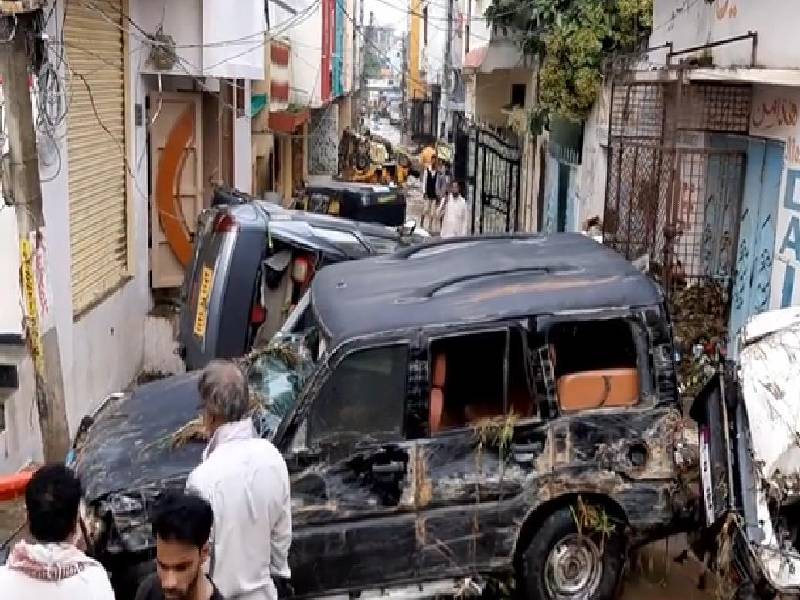Hyderabad floods: No lessons learned from the past
By J.S. Ifthekhar
Hyderabad: It never rains but pours in Hyderabad. But sadly, the citizens, more so the government, seldom learn from their past mistakes. The present havoc wreaked by the incessant rains has a sense of a haunting sameness with the August 2000 floods, one of the worst since the great floods of 1908. Unplanned growth in areas unsuitable for urban life, conversion of the Musi river watercourse, and turning lake beds into residential areas are the causative factors. This was clearly pointed out by the Geological Survey of India in its report earlier. Twenty years down the line, there is no change in the situation. If anything, it has only changed for the worse.
�
Unlike the 2000 floods which were limited to certain parts of the city, the present flash floods have swamped the whole of Hyderabad. There was a time when Hyderabad was full of tanks, lakes, and gardens. One can still find many areas bearing the names Basheerbagh, Baghlingampally, Nallakunta, and Masabtank. But they are mere names now. Over the years, the city’s landscape has changed, with greenery and water bodies giving way to colonies. No wonder, whenever the skies open up, the rainwater unleashes its fury against habitations that have come up in its pathway. The present disastrous situation, experts feel, is the result of collective mistakes and blunders committed by the successive governments, policymakers, and vested groups. Environmentalists B.V. Subba Rao, Prof. K. Purushottam Reddy, and K. Sajaya say that there is a marked disregard for the environment and proper land usage.
�
If the situation has to improve then it is imperative that both the attitude and policies for the environment and urban planning undergo a paradigm shift. What is required is a multidimensional approach to address the problem. But the government action is limited to only evicting the poor in the aftermath of the deluge while sparing the bigwigs who have built palatial houses on the river beds. Experts want the government to take hard decisions and immediately demolish all existing encroachments and constructions on water bodies, nalas, and river beds. "Otherwise Hyderabad is in for destruction like other cities built along rivers," warns COVA executive director Mazher Hussain, who produced a documentary on the 2000 floods along with Sajaya.
Environmentalists want the HMDA to come out with an integrated master plan showing the hydrological map of the city and to accelerate efforts to remove waterlogging on roads. If Hyderabadis have to coexist with nature, there is no way but to refashion and rebuild the entire city landscape. A tall order, indeed. But is there any other alternative?